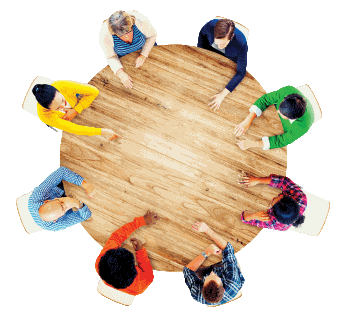Improve Group Cohesion with Recovery Related Topics
By Connie N.
While group cohesion is built in many ways, one way is to allow time for the group members to simply get to know one another. Cohesiveness is important to any group’s effectiveness, and in SMART Recovery, group cohesiveness has been linked with more frequent cognitive restructuring (Kelly, Deane, & Baker, 2015). This leads to better management of thoughts, feelings, and behaviors which is very important in recovery from addiction of any kind.
Therefore, I came up with a list of icebreakers for the group I facilitate in order to assist participants in getting to know each other casually, while also focusing on a recovery-related topic. These have been put on cards and placed in a box. Generally, I ask a participant to pick a question for everyone to answer if they choose during the check in. Several other questions could likely be added to this list if you choose to use it in a meeting.
27 Recovery Related Icebreakers
 • I feel calm when…?
• I feel calm when…?
• I feel happy when…?
• I feel content when…?
• By this time next year I will…?
• Name three strengths you have.
• What is one long-term goal you have?
• What is one thing you are proud of yourself for?
• What SMART tool have you used in the last week?
• What are three signs of resilience you see in yourself?
• What short-term goal are you working toward right now?
• What difficult trigger have you overcome in the last 6 months?
• What is the most helpful thing you do when you have an urge?
• What is your favorite Vitally Absorbing Creative Interest (VACI)?
• What was the best thing that happened to you in the last month?
• What are the top three reasons I do not choose to use/do anymore?
• What was your high today and what was your low today (or week)?
• Is there anything you are currently working on change about your life?
• If there was one thing you could change about your life, what would it be?
• What SMART tool would you like to learn more about and put into use more?
• What is one thing you would like to change to make your life more satisfying?
• What is happening in your life now that is better since you stopped using/doing?
• In working various ABC’s, what is one of the most important beliefs you have defeated?
• If you felt a need for support in your recovery, who would you be willing to reach out to?
• What mistake have you made in the last week and how can you do it better in the future?
• If you could have the ideal support and circumstances for a life change, what would that look like?
• When you have a difficult day, what are three things you can do to make yourself content and/or happy?
• Besides stopping whatever addictive behavior or substance you were using/doing, what is the most beneficial change you have made in your life since beginning recovery?
Ref: Kelly, P. J., Deane, F. P., & Baker, A. L. (2015). Group cohesion and between session homework activities predict self-reported cognitive–behavioral skill use amongst participants of SMART recovery groups. Journal Of Substance Abuse Treatment, 51,53-58. doi:10.1016/j.jsat.2014.10.008
 Connie N. is a mother of four grown children and a manager in healthcare. She is currently pursing her graduate degree while continuing to volunteer as a SMART Recovery meeting facilitator in a city which had no SMART presence just two years ago! Connie enjoys her free-time kayaking with her children.
Connie N. is a mother of four grown children and a manager in healthcare. She is currently pursing her graduate degree while continuing to volunteer as a SMART Recovery meeting facilitator in a city which had no SMART presence just two years ago! Connie enjoys her free-time kayaking with her children.
